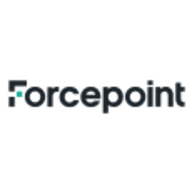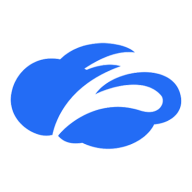


Forcepoint and Zscaler are major players in the security market, particularly in data loss prevention and cloud security solutions. Based on the comparison, Zscaler tends to have an advantage with its ease of deployment and seamless integration of cloud services.
Features:Forcepoint offers fingerprinting technology, extensive policy templates, and SIEM and CASB integration. Its endpoint protection and network DLP are notable features. Zscaler focuses on seamless cloud security with a zero trust model, scalable integrated VPN and CASB solutions, and ease of deployment for secure access.
Room for Improvement:Forcepoint needs better language support in templates, enhanced data classification to reduce false positives, and improved email integration. Users report challenges with support responsiveness and AI integration. Zscaler could improve latency issues, simplify configuration, and offer more control over SSL inspection. It also needs enhanced support responsiveness and broader DLP coverage beyond web traffic.
Ease of Deployment and Customer Service:Forcepoint's on-premises deployment is extensive but complex, with good customer support despite mixed reviews on response times. Zscaler's cloud-centric approach allows swift deployment and is known for reliable and responsive customer service.
Pricing and ROI:Forcepoint is competitively priced but may be costly for smaller businesses. Users find value in its ROI through compliance benefits. Zscaler's pricing appears high, yet its feature set and flexible licensing offer scalability benefits, appealing to larger enterprises.
WordPress security can be tricky, and that's where Cloudflare can be absolutely helpful for small businesses.
We have had ROI with the tool's use since it never gave us downtime and made us lose millions.
For the small project I was working on, using the basic tier provided a huge improvement at zero cost.
This would help us address issues promptly, especially during unforeseen events like DDoS attacks.
We'd like a dedicated account manager.
You can get a support engineer with the best qualifications.
They conduct sessions to check logs and policies, unlike Symantec, where engineers may temporarily check and ask for logs, causing delays.
Sometimes, support takes time since the solution has some bugs that need fixing.
I would rate the solution's scalability a ten out of ten since I didn't encounter any issues with it.
I rate its scalability a ten out of ten because I had no issues with it.
I rate the scalability a ten out of ten.
For DDoS protection, I would not recommend Cloudflare.
I rate the solution’s stability an eight out of ten.
The service is very stable with no impacts during high-traffic periods.
There's a need for improvement in areas like AI-based DDoS attacks and Layer 7 WAF features.
Despite these challenges, overall, Cloudflare remains the preferred solution compared to Azure, AWS CloudFront, and Google Cloud Armor.
the ability to integrate with the on-site active directory instead of just AD through Azure AD
While Forcepoint is mostly on-premises, I suggest that to compete with Symantec, they should consider cloud solutions.
They might be able to identify if something is missing with Zscaler.
That's where Cloudflare shines for smaller businesses – it's ten times cheaper than Akamai.
I find it to be cheap.
It's cost-effective, but I think they should have a custom pricing model for enterprise customers based on the features you use.
The pricing is reasonable and medium, not very low, but fair for the product offered.
Our scenario consisted of two web servers in different allocations to control access demands, and the load balancer did the job as expected, bringing security and stability to access points.
For me, the valuable feature is DDoS protection.
The most valuable features of the solution are performance and security.
It provides multiple customization options for policies, which makes it superior to Symantec.
The solution is cloud-based with the latest inspection engines, which I find to be amazing.



Cloudflare is a highly-regarded Content Delivery Network (CDN) and a Distributed Denial-of-Service (DDoS) protection solution. The robust global connectivity cloud platform that is Cloudflare ensures users are able to connect to the Internet quickly, securely, and reliably. Cloudflare is one of the world's largest networks in the marketplace today. Using Cloudflare, businesses, educational entities, NGOs, vloggers, bloggers, and anyone else with an internet presence can experience more secure, faster websites and applications.
Currently, there are millions of Internet locations on Cloudflare, and the Cloudflare network
continues to grow every day by the thousands. The solution is able to fulfill the requests for
millions of websites seamlessly and serves on average 45 million HTTP requests per second.
Cloudflare has safe, secure data centers in close to 300 cities worldwide to ensure every
client request is filled as quickly as possible. It is Cloudflare’s edge network that makes this
possible by keeping content and other services as close to each client as possible, so the
information requests are always only seconds away.
Many organizations that work in democracy, civil society, human rights, or the arts are able to
access Cloudflare's highest levels of protection for free via Project Galileo. Additionally, official
election websites can be secured from hacking and fraud through Cloudflare’s Project
Athenian, also at no additional cost.
Cloudflare can also help organizations of all sizes develop a robust zero-trust strategy to
ensure the highest levels of productivity and profitability. Employees, stakeholders, and end users have a greater level of satisfaction and overall improved user experience, which can, in
turn, result in higher revenues and overall ROI. Zero-trust and BYOD (bring your own device)
access ensure end users and employees always have the best resources and technology
available to them at all times.
Cloudflare benefits
Cloudflare has many benefits. Some of its most valuable benefits include:
- Faster load times
- Robust DNS security
- Intuitive cloud Web Application Firewall (WAF)
- Free universal SSL
- Image enhancement
- Automatic browser caching
- Next-generation cloud load balancer
- Accelerated Mobile Pages (AMP)
- Rate limiting
- Minification
- Zero-trust capabilities
- Cost-effective
- Reduced carbon footprint
Reviews from real users
“Many websites require an SSL certificate because they sell stuff and want SSL. Cloudflare
comes with an SSL certificate built in. It's automatic. You sign yourself up for Cloudflare, and
an SSL certificate automatically protects your website. If you have a connection between your
website and your host, the server, Cloudflare, and the host, you don't necessarily need a
certificate.” Spencer M., Owner at Tech Exchange
“What I like best about Cloudflare is that my company can use it to trace and manage
applications and monitor traffic. The solution tells you if there's a spike in traffic. Cloudflare
also sends you a link to check your equipment and deployment and track it through peering,
so it's a valuable tool.” Daniel P., Network Engineer at Ufinet
“The most valuable feature of Cloudflare is the GUI. You are able to control the solution very
well through the interface. There is a lot of functionality that is embedded in the service.” PeerSpot user, Competence Center Manager at a tech services company
Forcepoint Data Loss Prevention offers comprehensive data protection with strong template support, seamless cloud integration, and detailed reporting. It ensures data security through extensive endpoint, network, and server-level controls.
Forcepoint Data Loss Prevention is equipped with advanced fingerprinting technology, optical character recognition, and a large library of predefined rules. Organizations gain comprehensive data visibility and effective policy enforcement, supported by dynamic user behavior analysis and compliance capabilities. Its intuitive interface and flexible deployment options position it as a top choice for data security, although it could improve in communication reliability and language support. Complex reporting, machine learning integration, and cross-platform compatibility require enhancements.
What are the key features of Forcepoint Data Loss Prevention?Forcepoint Data Loss Prevention is utilized extensively in industries like finance and law to protect sensitive information from unauthorized transfers. It secures enterprise legal documents, financial assets, and personal data, employing features such as OCR to safeguard data across network, email, and cloud channels.
Zscaler Zero Trust Exchange Platform acts as a VPN alternative for secure remote access, cloud protection, and zero-trust strategies. It enables secure data transmission, supports remote work, and enhances compliance through a cloud-based architecture, offering improved performance and simplified management.
Designed for organizations seeking secure application access and robust data protection, Zscaler Zero Trust Exchange Platform delivers a comprehensive solution through seamless VPN connectivity, data loss prevention, and SSL inspection. Its cloud integration ensures scalability and reliability, while its interface provides intuitive management. Companies benefit from automatic secure access, minimizing constant authentication needs, and safeguarding sensitive data. The platform allows easy deployment and integration with diverse identity providers, granting granular control for access and application segmentation. Despite powerful capabilities, enhancements are needed in speed, bandwidth, and legacy support, with users noting interface and configuration challenges.
What are the key features of Zscaler Zero Trust Exchange Platform?In specific industries, Zscaler Zero Trust Exchange has been implemented to enhance security protocols in fields like finance and healthcare. By prioritizing data protection and compliance, it assists companies in safely managing sensitive information and meeting regulatory requirements. Organizations leverage its features to ensure secure operations across remote and cloud environments, adapting to industry-specific needs with customizable access and security controls.
We monitor all Data Loss Prevention (DLP) reviews to prevent fraudulent reviews and keep review quality high. We do not post reviews by company employees or direct competitors. We validate each review for authenticity via cross-reference with LinkedIn, and personal follow-up with the reviewer when necessary.